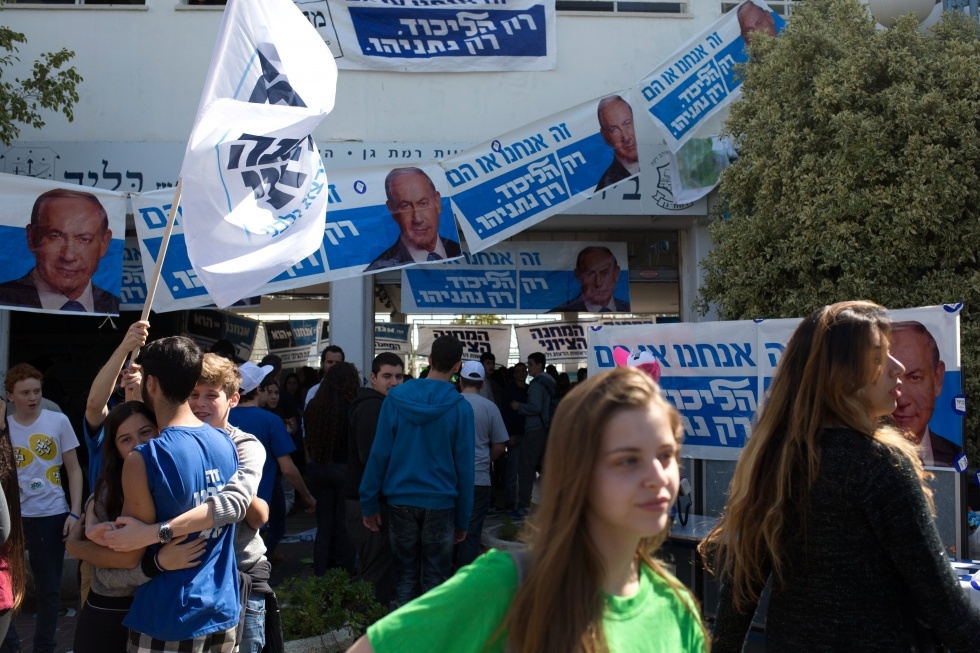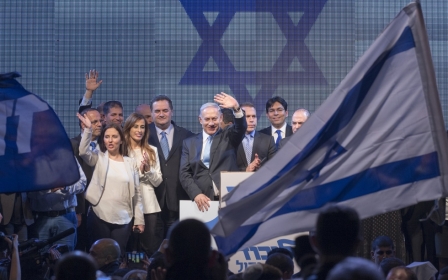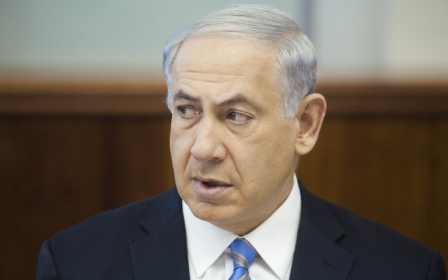Palestinians in Israel may finally have something to vote for

It was a move that just completely backfired. When Israel’s foreign minister Avigdor Lieberman proposed raising the voter threshold by which political parties could qualify to stand in the country’s election, he was accused of doing so to eliminate the small Palestinian parties. Representing Israel’s 1.7 million Palestinian citizens, who stayed after the 1948 war that created the country, these tiny “Arab parties” (using the identity-effacing label that Israel prefers) were supposed to thereby disappear.
The new threshold of 3.5 per cent of the vote, which was made law last year, translates into around four seats - and those small Palestinian parties usually struggle to scrape two apiece. But instead of falling out of the race altogether, they combined forces, forming the Joint List ahead of the March 17 election.
This new Joint List has revived the Israeli Knesset elections for the country’s 20 per cent Palestinian population. During the last election, voter turnout for this sector was around 56 per cent (Israeli Jewish turnout stood at 70 per cent). But this time around, the figure for Palestinian voter turnout is, according to one poll, predicted to be nearer 70 percent. According to the latest polls, this joint list is set to come fourth in the election, potentially and quite unexpectedly putting it in a key position in an Israeli system that tends to produce coalition governments.
A prior lack of unity between the Arab sector parties - a range of Islamist, communist and nationalist offerings - has always been one reason for the low voter interest in the elections. Such divisions - both personality-driven and ideological - between the parties also made it surprising that they managed actually to set differences aside to form a Joint List, and has led some doubters to wonder whether the unity can survive beyond the election.
But still, speaking at the launch of the Joint List campaign in Nazareth, northern Israel, on Saturday, the list leaders met with uncharacteristically crowded and enthusiastic halls.
MK Ahmed Tibi, from one of the Joint List parties, Ta’al, announced that while Lieberman “gambled that we would not unite… we overcame [inter-party] competitiveness in order to send a message of a united, strong minority.”
Another of the list’s main factions, Hadash, is a Jewish-Arab communist party and its leader, MK Dov Khenin, urged unity across Israel’s populations. “Jews and Arabs must stand together against the ugly wave of hatred and racism,” he said.
And that’s the context in which this joint Arab list has surfaced. The terrible war on Gaza last summer, in which over 2000 Palestinians, including 500 children, were killed, also took its toll inside Israel – exacerbating the increasingly hateful and discriminatory climate for Palestinian citizens. During that time, Palestinian citizens of Israel were openly harassed on social media and in workplaces - and Lieberman called for a boycott of any Arab businesses that opposed the Gaza war. That was worsened in the wake of deadly incidents in Israel – “lone wolf” attacks and a terrifying attack on a synagogue, none of which had anything to do with Palestinian citizens of Israel. Following the synagogue killings, one Israeli mayor fired Palestinian municipal workers, prompting accusations of blatant racism and unlawful discrimination.
Meanwhile, elements of the current, hard-right coalition, led by Prime Minister Binyamin Netanyahu, have tried to delete Arabic from Israel’s list of official national languages. Late last year, rightists attempted to push through a “nation-state bill”, which would make Israel a state for Jewish people by law – which was blasted as being anti-democratic and blocked by other Knesset members. Lieberman, meanwhile, has in the past demanded that Israel’s Palestinians take a “loyalty oath” and also wants, bluntly, to get rid of Palestinian-populated areas of Israel, by ceding them to a future Palestinian state.
As Israeli society has shifted ever-rightwards, it has become increasingly hostile towards its Palestinian population. A poll in 2012 showed that half of Jewish Israelis wanted Palestinian Israelis to be stripped of their citizenship, while 40 per cent wanted segregated schools and housing.
And all that’s on top of historic and continuing levels of discrimination that are steeped into Israeli resources-allocation, creating sharp inequalities in income and employment, as well as over public services such as housing, schools and roads.
So, as well as being a parliamentary voice against Israel’s siege of Gaza and occupation of the West Bank, the Joint List, it is hoped by its supporters, will pursue the goal of equal rights as citizens of Israel – or at very least stem attempts to take even more rights away. The list has already said it may informally associate with the centrist faction comprising the Labour party and Justice Minister Tzipi Livni’s group of MPs, functioning as what Ahmed Tibi has described as a “blocking bloc” to prevent Netanyahu from re-taking office. Arab parties have only joined an Israeli coalition once, during the Oslo years of the 1990s. Israel’s mainstream parties – even on the so-called left – have otherwise not wanted to form coalitions with any of the Arab parties.
There is, of course, pessimism about the prospects of a Joint List in a political system and climate that is so obviously stacked against them. But this unity agreement, despite considerable ideological rifts, seems a reason to be hopeful, too. As Israeli journalist Gilad Halperin writes, it could enable a “focus on their common goal: the promotion of minority rights, and a more pluralistic and multicultural, and less ethno-centrist, Israel.” A Jewish Israeli, he intends to vote for this Arab list for the first time. And that’s another significant aspect of this Joint List: it presents a new, strengthened voting option for Jewish citizens who oppose Israel’s constant wars and occupation, but have run out of parties to support as this position has been increasingly marginalised and pilloried within Israeli society.
- Rachel Shabi has written extensively on the Israeli-Palestinian conflict and the Middle East and is the author of the award-winning book, Not the Enemy: Israel's Jews from Arab Lands.
The views expressed in this article belong to the author and do not necessarily reflect the editorial policy of Middle East Eye.
Photo: Israeli students of the Blich high school walk past Israeli Prime Minister Benjamin Netanyahu's election posters during a mock polling day in the central city of Ramat Gan on February 22, 2015.
New MEE newsletter: Jerusalem Dispatch
Sign up to get the latest insights and analysis on Israel-Palestine, alongside Turkey Unpacked and other MEE newsletters
Middle East Eye delivers independent and unrivalled coverage and analysis of the Middle East, North Africa and beyond. To learn more about republishing this content and the associated fees, please fill out this form. More about MEE can be found here.





